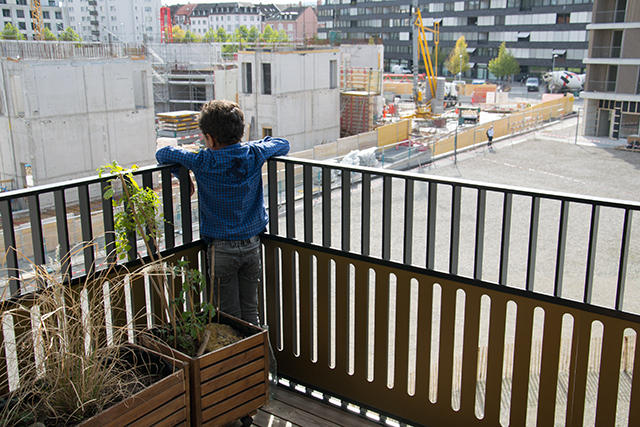
Health effects of a disadvantaged childhood persist in old age

By studying thousands of 50-96-year olds across 14 European countries, researchers at the University of Geneva have identified a ‘direct, biological, and sustainable effect’ of socioeconomic deprivation during childhood on muscle strength – a key indicator of health – later in life.
The study, led by Stéphane Cullati and Boris Cheval of the University of Geneva (UNIGE), and funded by the Swiss National Centre of Competence in Research (NCCR) LIVES programme, showed that even if living conditions improved later in life, a childhood spent under “unfavourable socioeconomic circumstances” still had a negative effect on health as an older adult – especially for women.
The results were obtained by analysing some 100,000 data points from 24,000 participants – half men and half women – who were each interviewed six times between 2004 and 2016 as part of the European Union SHARE (Survey of Health, Ageing and Retirement in EuropeExternal link) project. The study was publishedExternal link Tuesday in the Oxford Academic journal “Age and Ageing”.

More
What it’s like to be a poor child in wealthy Switzerland
Books, bedrooms, and breadwinners
Socioeconomic circumstance in this case was determined based on how the study subjects described four different aspects of their home lives at age ten: the profession of the family’s main breadwinner, the number of books in the house, the quality of housing, and the number of people living in the home compared to the number of bedrooms.
The health of the study participants was then assessed using several indicators, notably muscle strength – a key biomarkerExternal link for health – which the researchers measured by testing the subjects’ grip. Other factors the researchers looked at included self-reported health, lung capacity, sleep quality, body mass index, and reports of any cognitive disorders or depression.
“The results showed that people who faced poor socioeconomic circumstances in childhood had, on average, less muscular strength than those who were better off in their early years,” Cheval explained in a UNIGE press releaseExternal link on Tuesday.
“Even when adjusted to take into account socioeconomic factors and health behaviours (physical activity, tobacco, alcohol, nutrition) in adulthood, associations remained very significant, especially among women, who were often less susceptible to benefit from social mobility,” he said.
Early intervention
The researchers hypothesise that chronic stress brought on by difficult socioeconomic circumstances can impair the body’s regulatory mechanisms, like the immune response, and limits its ability to maintain good health over a lifetime.
Both authors believe the results call for early intervention when it comes to disease prevention. They are already planning to study the effects of national socioeconomic systems on the correlation between poverty and health in old age.
“Scandinavians are generally in better health, regardless of their socioeconomic level. They are also the most egalitarian countries, in terms of access to care, or education,” Cullati notes.

In compliance with the JTI standards
More: SWI swissinfo.ch certified by the Journalism Trust Initiative



























You can find an overview of ongoing debates with our journalists here . Please join us!
If you want to start a conversation about a topic raised in this article or want to report factual errors, email us at english@swissinfo.ch.